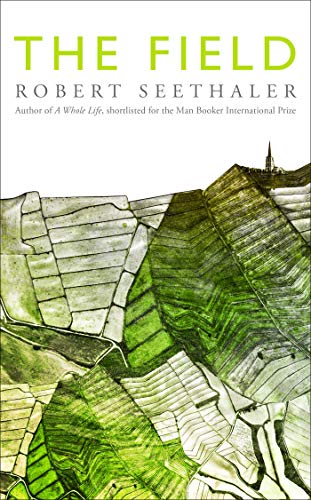Why a Booktrail?
2000s: If the dead could speak, what would they say to the living?

2000s: If the dead could speak, what would they say to the living?
From their graves in the field, the oldest part of Paulstadt’s cemetery, the town’s late inhabitants tell stories from their lives. Some recall just a moment, perhaps the one in which they left this world, perhaps the one that they now realize shaped their life forever. Some remember all the people they’ve been with, or the only person they ever loved.
These voices together – young, old, rich poor – build a picture of a community, as viewed from below ground instead of from above. The streets of the small, sleepy provincial town of Paulstadt are given shape and meaning by those who lived, loved, worked, mourned and died there.
From the author of the Booker International-shortlisted A Whole Life, Robert Seethaler’s The Field is about what happens at the end. It is a book of human lives – each one different, yet connected to countless others – that ultimately shows how life, for all its fleetingness, still has meaning.

Paulstadt
A fictional town somewhere in Germany. The streets of the small, sleepy provincial town of Paulstadt are given shape and meaning by those who lived, loved, worked, mourned and died there. A small plot of barren land has been donated to be the final resting place of the town’s inhabitants.
“Being the oldest is not an achievement or an advantage. You die at a hundred and five the same at eighty-five or thirty-two, and the price of a life that long is loneliness. Death is the same for everyone. It’s just that the people standing beside the grave don’t know that yet. I’ve often stood beside a grave, and it was never nice. The closest it might come would be in Spring, if you don’t know the deceased that well and the trees are blossoming and the birds chirping. Sometimes I imagined the birds in the trees were the souls of the dead. A nice idea, but nonsense, obviously.”
Interesting premise but a bit morbid. In the fictional town of Paulstadt in Germany, a patch of land has been set aside to bury its dead. These people then rest there at the heart of their community and through their voices from beyond the grave tell the stories you discover in this book. It’s not really a novel, more a series of vignettes of lives lived, histories shared and a display of how time and place passes and changes each and every one of us.
It’s clever how Paulstadt is fictional as this helps to ground the novel in a place, any place, so that this novel transcends both its fictional and physical borders. The emotional borders are the most heartbreaking though.
The reading experience was unique but fleeting. It’s akin to wandering in a cemetery and having each of the people buried below tell you their story. Brief and affecting but once you leave that cemetery, the mist descends and you are left with an overall picture of lives lived and faded memories fluttering in the air.
Destination/location: Germany ‘Paulstadt’ Author/guide: Robert Seethaler Departure Time: 2000s
Back to Results